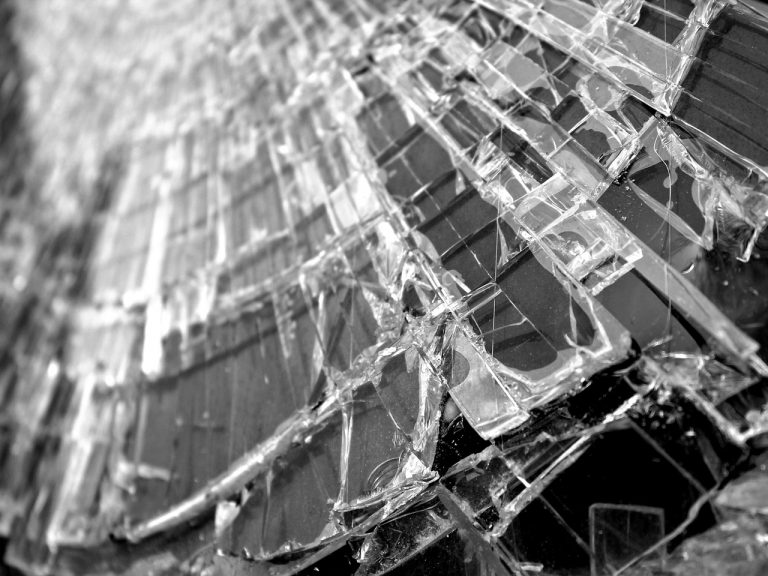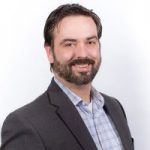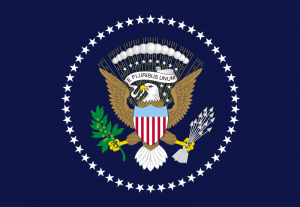
[EDITOR’S NOTE: With so many people along South Carolina’s coast on the road during Hurricane Matthew, this story, originally shared on Facebook by Push Digital President Michael Rentiers, has particular relevance.]
By Michael Rentiers, special to Charleston Currents | Something happened to me recently that helped bring home a problem in our society. A problem that I believe is exacerbated in our digital lives. It dovetails on a blog Wesley [Donehue] posted recently called,“How the Internet is Fueling Hate.”

Rentiers
I say it happened to me, but that’s not right. It happened to other people and, for whatever reason, I was there to play a part in it. It was a living nightmare. I want to recount it for you, but I will be short on the details for a couple reasons. First, I do not enjoy reliving the experience but feel there is an important point to be made. Second, I am vague out of respect to the family involved who is suffering greatly. I feel bad even speaking about it so bear with me.
One evening recently, I was on the road from Charleston to Columbia, S.C. On a lonely stretch of Interstate, an SUV just up ahead of me blew a front tire. The vehicle immediately left the road, slamming into the tree line. The sheer force of impact sent the car rolling over a number of times. I made it to the SUV at about the same time as another man and what we encountered will be with me forever.
The crash had been so devastating that bodies were everywhere inside the vehicle and one poor child lay outside the vehicle. We began pulling out bodies of varying degrees of injuries ranging from catastrophic to merely life-threatening. Most of the victims were children.
Skipping ahead: Once the authorities took over and we were processed out of the scene, I stood alone on the side of the road as traffic was still blocked. I was staring blankly at nothing in particular when an older woman approached. Being a former police officer and having nowhere to go, she was curious about the accident. She could tell, even from a distance, that it was about as bad as it could have been. Maybe it was my appearance that provided a telling hint as well.
When I finished recounting the story, a couple of other people, who had assisted in helping until ambulances and helicopters arrived, gathered around. The former police officer nodded at me and said, “You all did what God put you there to do. We all have to take care of each other. People take care of other people. It’s what we do.”
It’s that last sentence that stuck with me. At this point, I’ll tell you that the family in the accident was a young black family. The man who worked with me to pull people out was a black man about my age. I am white. A number of white women also stopped to provide aid and comfort to the injured while we awaited the authorities. A black woman called the police. I hadn’t thought about it until this former police officer, a black female, said that last sentence and gave me a knowing look.
We are all people and we all have a duty to look out for one another.
But we don’t really behave that way in the public square anymore, do we?
On social media — particularly in political conversation — sex, color, sexual preference or any number of other things first identifies us. It’s as if those markers make up all we are as people. And with that comes a flood of biases and preconceived notions. We become a caricature of ourselves, designed to separate us from our commonality and to keep us angry at each other.
 This presidential election has brought out the worst examples of this and in us. We refuse to think of those we disagree with as people, only as their subgroup.
This presidential election has brought out the worst examples of this and in us. We refuse to think of those we disagree with as people, only as their subgroup.
That’s what we do now-a-days. We argue over things and people and wedge-issues that really don’t matter. And it has become hateful. We align and define ourselves by division, not addition.
Our nation had a founding principle, “E pluribus unum.” It means, “Out of many, one.”
We were meant to understand our differences but focus on, and even celebrate, our commonalities as a means to bind us together – to take care of one another.
But that’s not exactly true these days.
I fear that this movement will lead to a day when a person might just drive on by, unbound by any common concern for a fellow human being, rather than lend a hand to help a stranger because we no longer look at our similarities, only our differences.
If we let that happen, we will cease to be a great people who stand together. We will be a once grand experiment that fell apart. Still, I remain hopeful, strengthened by the everyday actions of people who still know deep down inside that we do have to take care of each other and that we are all people.
It is what we do.
Michael Rentiers of Columbia is president of Push Digital, a digital marketing and advocacy company based in Charleston.



 We Can Do Better, South Carolina!
We Can Do Better, South Carolina!
























